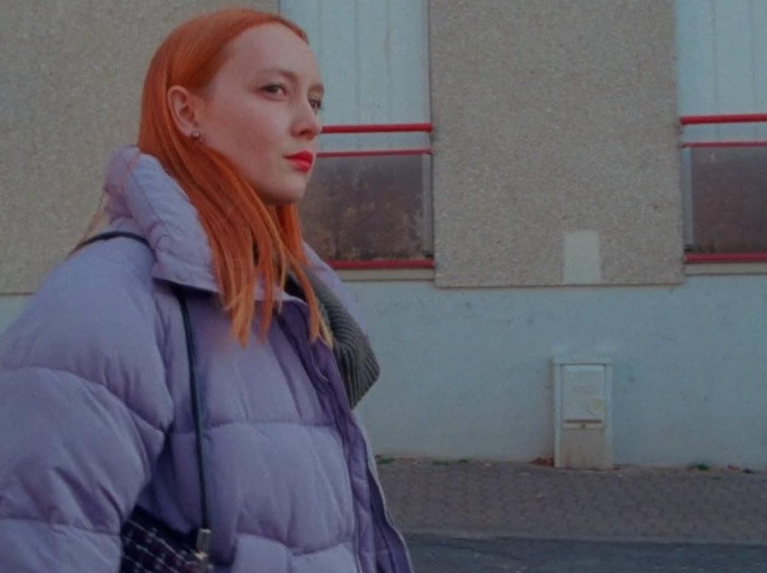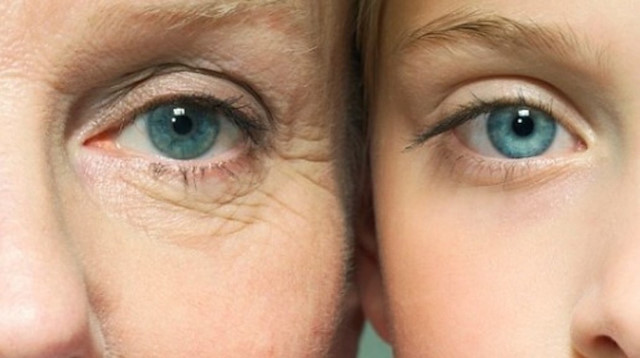Women’s issues and concerns were the focus of the 46th Clermont-Ferrand Film Festival (February 2-10), which concluded on Saturday evening in Clermont-Ferrand, a city in central France known worldwide for its most important short film event.
For 9 days, attention was drawn to women everywhere, in every field, in front of and behind the camera.
This happened after the new generation took the reins in recent years and the winds of change blew in this important cinematic event.
The films covered many themes, but what was new in this cycle was the absolute empowerment and celebration of women, even ‘avenging’ them, as this was the main sentiment emphasized in some of the selected films.
In a symbolic attempt to make up for the injustices done to women throughout history (not only at the festival, but globally), the festival management decided that the official jury members would all be women.
The program included many episodes that called for women’s rights and defended them in an arbitrary and sometimes ill-considered way, which could have the opposite effect and create alienation.
All this is happening at a time when France is in the midst of a sexual scandal, accusations of harassment and moral questions.
It has affected some of the best-known filmmakers, such as Benoit Jacot, 77, and Jacques Doyon, 80.
Actresses Judith Goodrich, Isild Le Besco and Anna Mouglalis accused two producers of harassing them when they worked together years ago.
Some of these incidents date back to the 1980s. The famous director Philippe Garrel also faced accusations of inappropriate behavior during filming.
It is clear that the “Me Too” wave has reached France and is now at its peak.
The festival has therefore become a platform for reflection on the relationship between cinema and the image of women it creates.
Based on questions such as “How do we portray women today? How can we avoid objectifying women and what are the ways to avoid falling into patriarchal narratives and the male gaze when telling women’s stories, especially if the person behind the camera is a man?”, it can be said that the festival succeeded in highlighting the presence of women in cinema in its own way.

Rebel women of cinema
The most important program for women in the recently concluded session was “Women in Rebellion”, which was presented in four sessions.
Each session was preceded by a feminist film produced by the Franco-German ‘ARTE’.
This event was presented at the Faculty of Arts, and the large lecture hall of the event was transformed over time into a hall for the screening of “rebellious women” films, in which the protagonists were women who rejected the social standards and traditions established by men.
It was also noteworthy that some of the films were really pedagogical in spirit, providing awareness and warning, and trying to bring about change by raising their voices against rights violations.
Given that the festival was held in this atmosphere, it was not surprising to see an advertisement in the catalogue for Krav Maga (martial art) learning classes organized by an organization and aimed exclusively at women, to enable them to defend themselves in the event of an attack.
Written by French-Greek Ariane Labed (actress-turned-director), Olla (27 minutes) tells the story of a young Eastern European woman who comes to France to stay at the home of a man she met through dating apps.
The young woman is one of many women in countries with difficult economic conditions, not knowing what awaits her or how much she will have to pay in exchange for enjoying a luxury not available in her country, and trying to find a foothold in a country like France.
After her arrival in France, Adam suggests changing her name from Olla to Lola so that she will not attract the attention and unnecessary attention of the inhabitants of the remote town where she lives with her sick and dying mother.
In every frame, it is clear that the man who brought her wants her to take care of her mother, run the house, and then sleep with him whenever he wants.
In short, he wants her to be his servant with certain privileges that he would not give to a normal servant.
But Olla rejects them in his own way and the result is disastrous and unexpected.
The film is a striking example of a feminist film that foregrounds the desires of the modern woman and depicts the world from her point of view without much complication.
The rebellion starts with the body, and it appears at many points in the movie, whether it is Olla pleasuring herself in the kitchen, dancing in front of the old mother, or offering sexual services to someone for money.
Because the woman gives her body to everyone except the man who wants to possess it and use it to fulfill his own desires and needs.

The good thing about the movie is that it is not serious or dramatic. The tragedy that looms in the background is viewed with a comedic and cynical eye.
Olla is one of the characters trying to survive in a world that constantly tries to exploit her physically, but her reaction is more horrible than any exploitation.
This makes the movie a controversial subject, as she is supposed to be a character who is part of the framework of righting the course of injustices done to women throughout history.
There is nothing wrong with showing the film in a program that does not make feminist claims, but in this particular context, there seems to be a confusion in the approach to the meaning of justice.
It is true that the history of cinema is full of male murderers and thieves, that it has always glorified them, that it has always portrayed them with a high image in the conscience, that some of them have become icons, but all this has nothing to do with correcting the situation, but rather it portrays an image that is as far away as possible from the moral lessons of some films that carry a new awareness.
In any case, the movie was received with applause and some of the audience left the theater with expressions of disapproval mixed with surprise on their faces.
The Women in Rebellion program took participants on a journey between the present and the past. Swiss director Carole Roussopoulos’ 17-minute film “Enough with the sex”, completed in 1971, was shown.
Before the screening began, an official from the festival warned the audience that the film contained shocking scenes and those who could not bear them should leave the theater.
Because the movie included scenes showing the details of an abortion that a woman decides to have in order to avoid giving birth to a fetus.
If these scenes were in a movie today, no one would notice, but at the time of publication in the early 1970s, abortion was a criminal offense in France.
The movie puts us in the middle of the women’s struggle, which is not new today, as some claim.
Again, the crux of the matter lies in the body and how women treat it.
In this context, it begins with the first scene France witnessed in the early 1970s, with women demanding the right to control their bodies and most passers-by watching them with caution and wariness.
Roussopoulos’ camera shows their reactions in support or opposition.
Some elderly women are also in support, saying that they missed the train to attend such a demonstration.
A woman does not seem very enthusiastic about the new world born from her womb.
“Just don’t have sexual intercourse,” she says to those who demand the removal of the fetus she conceived against her will.
The movie takes its title from this eloquent statement. This short film confirms the director’s leadership in feminist cinema.





